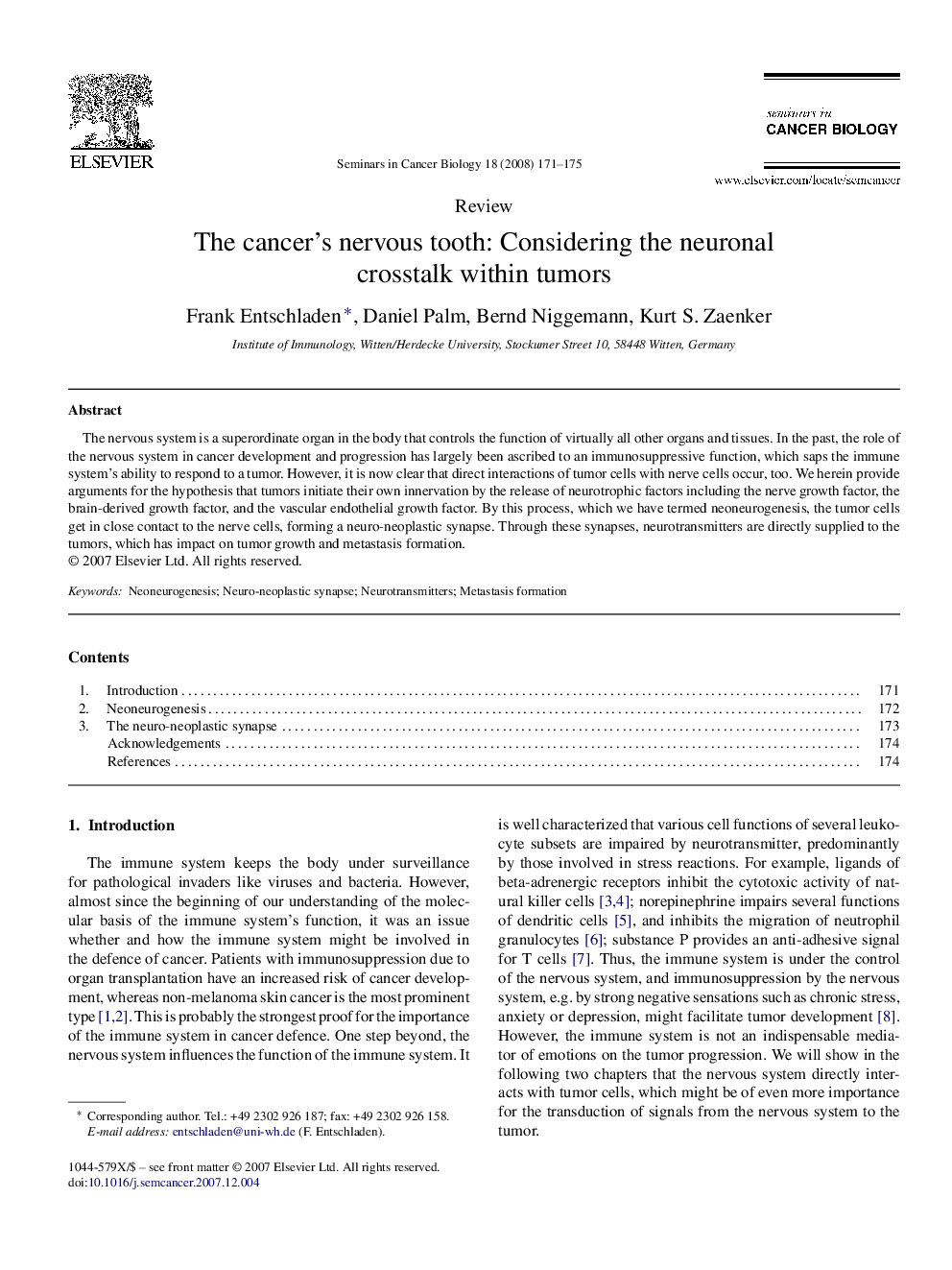| Article ID | Journal | Published Year | Pages | File Type |
|---|---|---|---|---|
| 2024067 | Seminars in Cancer Biology | 2008 | 5 Pages |
The nervous system is a superordinate organ in the body that controls the function of virtually all other organs and tissues. In the past, the role of the nervous system in cancer development and progression has largely been ascribed to an immunosuppressive function, which saps the immune system's ability to respond to a tumor. However, it is now clear that direct interactions of tumor cells with nerve cells occur, too. We herein provide arguments for the hypothesis that tumors initiate their own innervation by the release of neurotrophic factors including the nerve growth factor, the brain-derived growth factor, and the vascular endothelial growth factor. By this process, which we have termed neoneurogenesis, the tumor cells get in close contact to the nerve cells, forming a neuro-neoplastic synapse. Through these synapses, neurotransmitters are directly supplied to the tumors, which has impact on tumor growth and metastasis formation.
